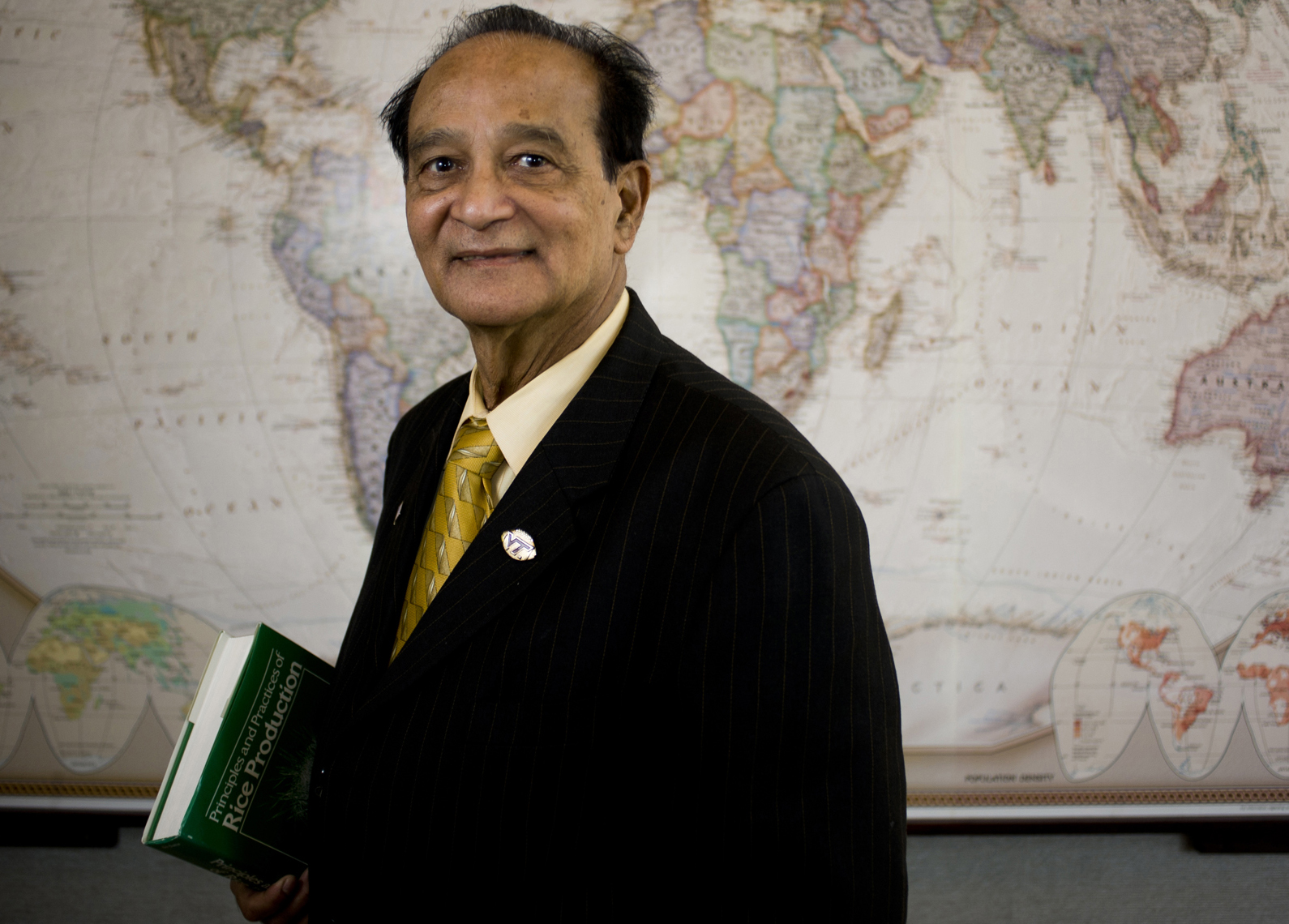International Plant Protection Sciences organization confers award on Virginia Tech's S. K. De Datta

In recognition of pioneering research in plant science and a career devoted to plant protection, a Virginia Tech administrator has earned a top honor from the International Association of Plant Protection Sciences.
S. K. De Datta, recently retired associate vice president for international affairs and director of the Office of International Research, Education and Development, received the International Plant Protection Award of Distinction at the 27th International Plant Protection Congress on Aug. 7 in Honolulu.
In the late 1960s, as a young agronomist and weed scientist, De Datta developed the agronomic practices for the semi-dwarf variety of rice known as IR-8, which led to the so-called Green Revolution, a development in agriculture that allowed the production of food to keep up with the growing populations of Asia. De Datta showed that the IR-8 rice cultivar produced up to 10 times the yield of traditional rice. Through his research, he developed weed control practices that led to wide-scale adoption of direct-seeded rice in tropical Asia. De Datta went on to write a comprehensive book about rice, “Principles and Practices of Rice Production,” published in 1981 by John Wiley and Sons and still a classic in the field.
The award program cites De Datta’s expertise in agriculture and his commitment to improving people’s lives around the world as leading him to serve as principal investigator on a wide variety of development projects at Virginia Tech, most of them funded by the U.S. Agency for International Development. One of the programs, the Integrated Pest Management Collaborative Research Support Program, has successfully developed vegetable pest management strategies for farmers in Asia, Africa, Central America and South America.
De Datta retired from a 20-year career at Virginia Tech on Aug. 31.
Dedicated to its motto, Ut Prosim (That I May Serve), Virginia Tech takes a hands-on, engaging approach to education, preparing scholars to be leaders in their fields and communities. As the commonwealth’s most comprehensive university and its leading research institution, Virginia Tech offers 240 undergraduate and graduate degree programs to more than 31,000 students and manages a research portfolio of $513 million. The university fulfills its land-grant mission of transforming knowledge to practice through technological leadership and by fueling economic growth and job creation locally, regionally, and across Virginia.




